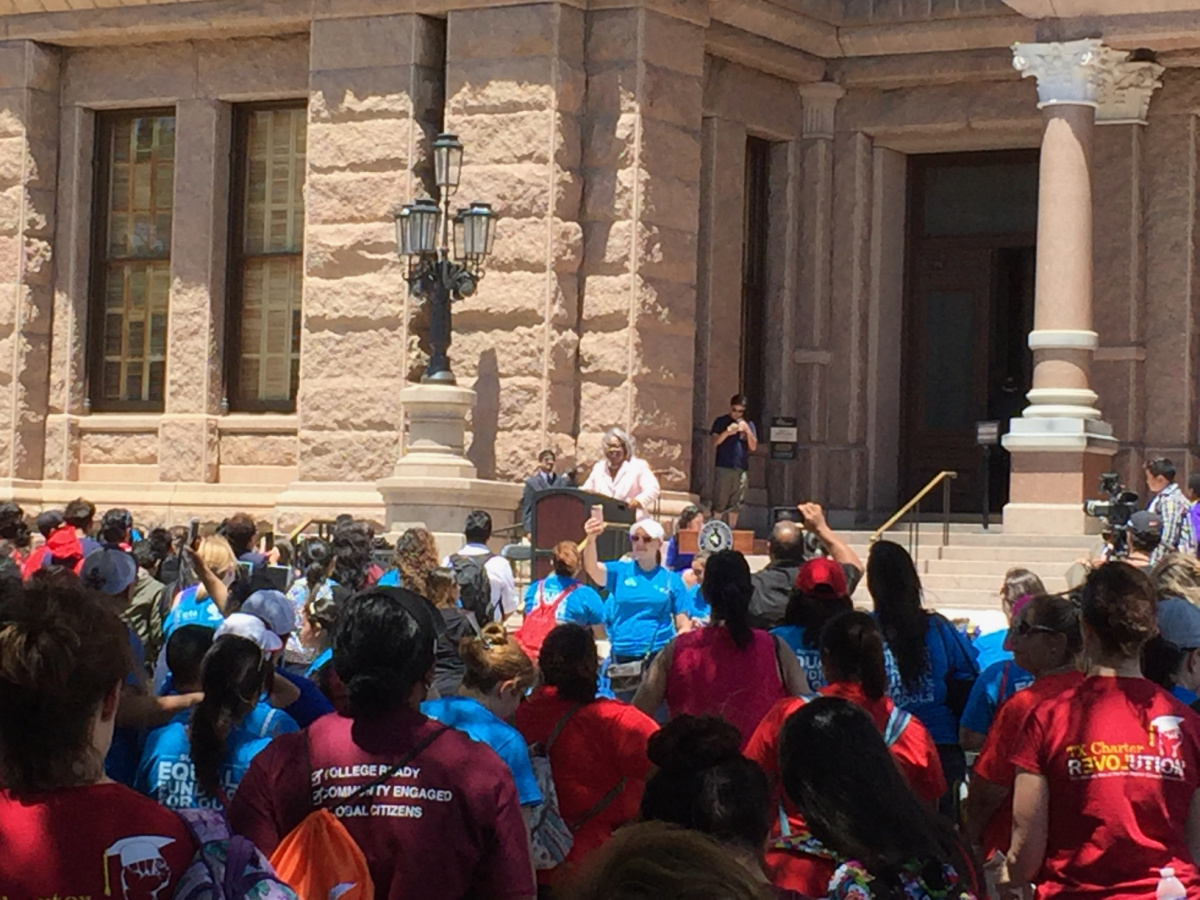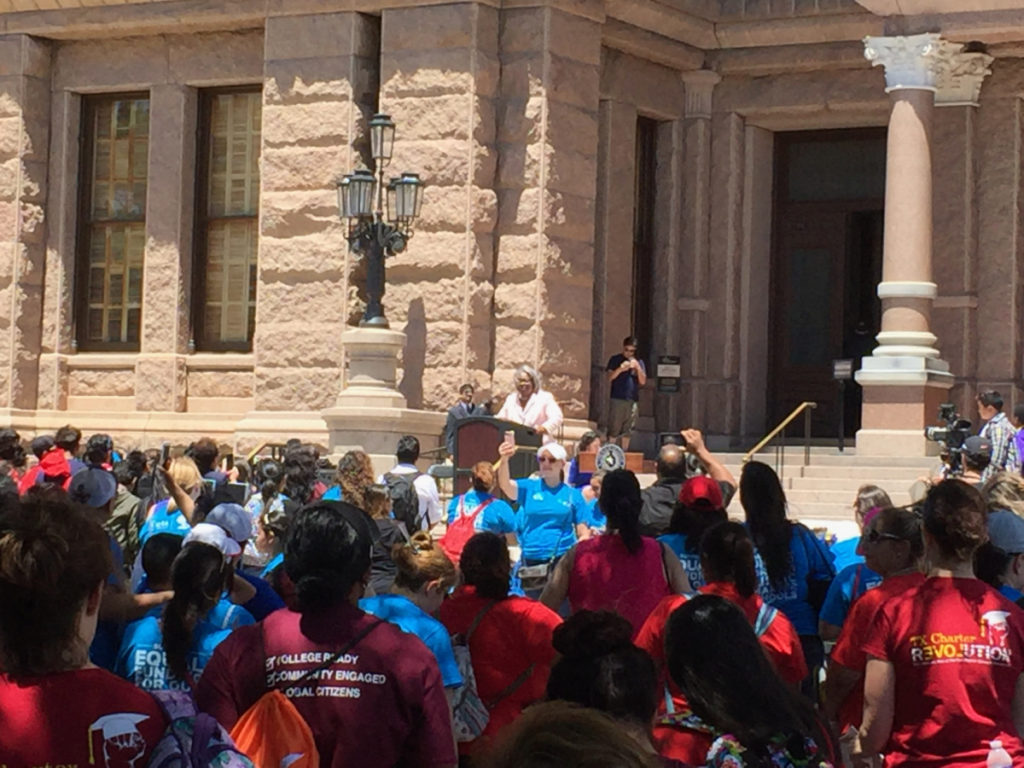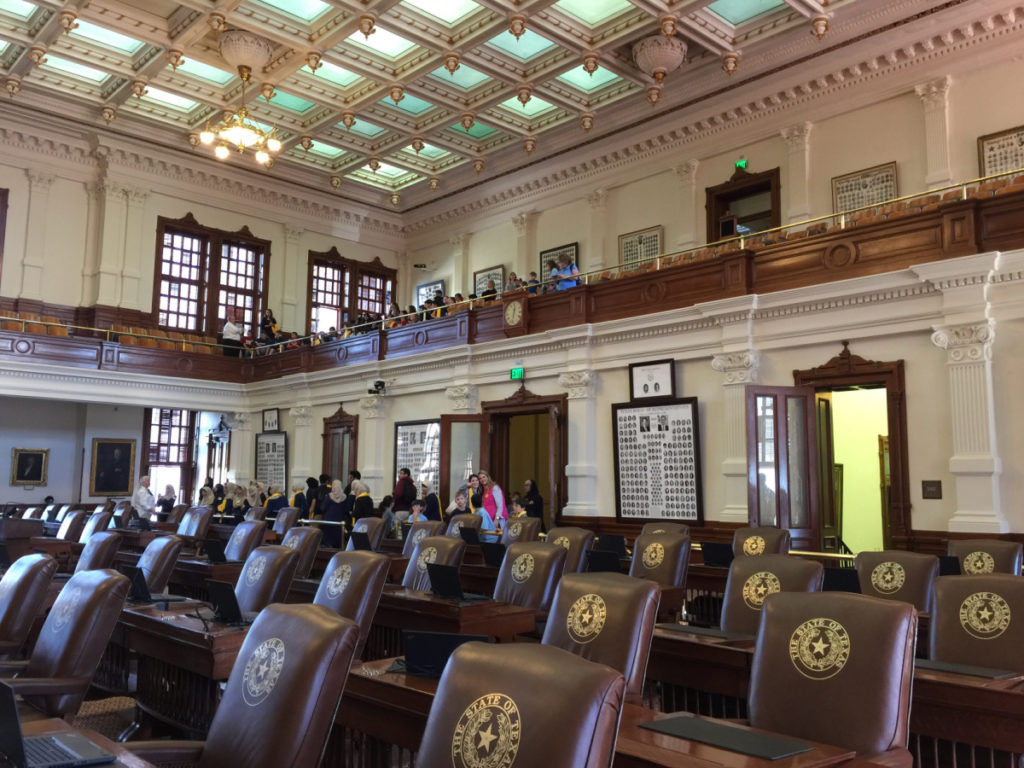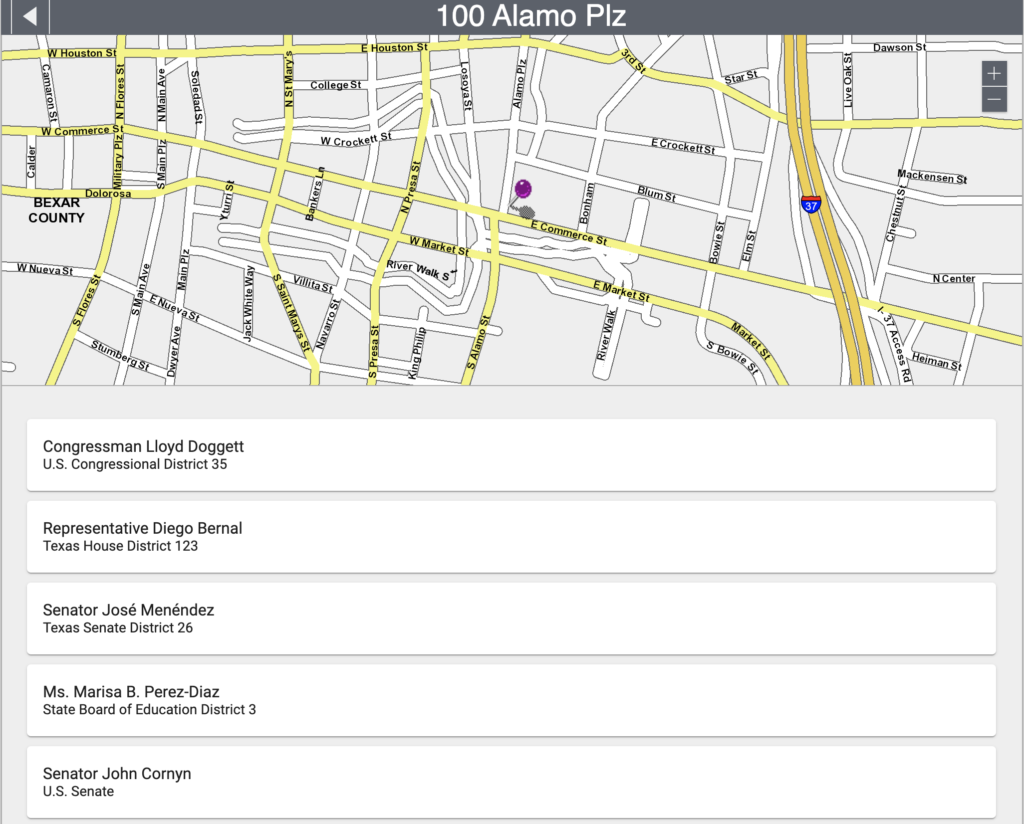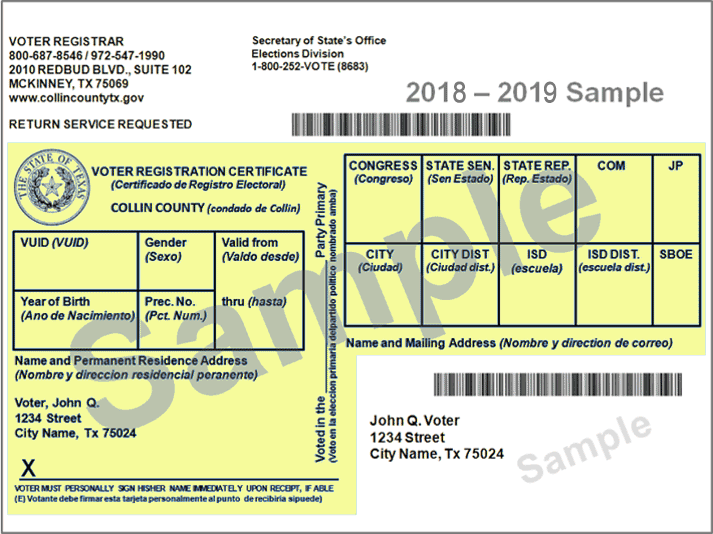Charter school parents often ask, “Who represents me?” This question comes up whenever something is not right and we are looking for change, and we want to know who to ask to make things better. Our elected officials and their staff members may seem remote and distant, but they’re not—they live in our communities, and they are extroverts who enjoy hearing real life stories from the people they serve. To make change in education, parent advocates need to know who represents them in the institutions that set education policy. This post has step-by-step instructions about how you can identify the elected officials whose job it is to listen to you and work for you.
This post is part of our ongoing Charters 101 series, providing clear explanations for charter school parents about how they can become stronger advocates for high quality education.
Who Sets Education Policy in Texas
In the United States, our system of government has a lot of institutions that overlap geographically. The goal is to keep decision making close to the people who are affected by it. But it means there is no simple answer to the question, “Who represents me?” when it comes to education policy in Texas.
State Education Policy
In Texas, the institutions that have the most influence over education policy are the Texas Senate and the Texas House of Representatives. They control the money: how to raise revenue from sources like property taxes, sales taxes, and the lottery, and how to spend that money. The legislature passes legislation that controls everything from hiring and firing teachers, disciplining students, constructing school buildings, authorizing new charter schools, administering standardized tests, and rating campuses and districts. The Texas Legislature meets at the state capitol in Austin for regular sessions from January through May in odd-numbered years. The Governor can call special sessions when there are urgent matters to resolve.
The Texas Legislature is organized into committees, including the House Committee on Public Education (there’s also a committee about Higher Education) and the Senate Committee on Education. Between legislative sessions—a time known as the “interim”—these committees hold hearings to collect information and lead discussions about education policy. Whether a bill makes progress towards becoming a law depends on its clearing hurdles set by the committee chairs, as well as the Calendars Committee and the Speaker of the House.
There are statewide elected officials who influence education policy, too, including the Governor, who appoints the Commissioner of Education; the Lieutenant Governor, who presides over the Senate; and the Land Commissioner, who oversees state lands that contribute to school funding. The Commissioner of Education oversees the Texas Education Agency, an administrative agency that regulates public schools (including charter schools) at the state level.
The Texas State Board of Education includes 15 elected members. Their responsibilities include setting curriculum standards and graduation requirements, reviewing and approving textbooks, approving rules for teacher certification, overseeing the Permanent School Fund, and reviewing the Education Commissioner’s recommendations about authorizing new charter schools.
Federal Education Policy
In the United States, most matters of education policy are determined at the state and local level, but the federal government plays a role as well. Every Texas resident is served by two U.S. Senators and one U.S. Representative. The President nominates, and the senate confirms, a Secretary of Education, who leads the federal Department of Education. The judicial branch—the federal courts, including the U.S. Supreme Court—has limited jurisdiction to review education laws.
Local Education Policy
At the local level, independent school districts and community college districts have elected boards. City councils and mayors have a role in decisions about land use and zoning. Here in San Antonio, the city is more deeply involved in education through Pre-K 4 SA, an early childhood education program. County judges and commissioners may impact education policy as well.
As you can see, our system of government has elected and appointed officials at many levels, from local to state, national, and international, who have a role in education policy. For purposes of charter schools, school choice, and school finance, the most influential people are your state senator and state representative, so we will focus more on how to identify which ones are representing your neighborhood.
Who Are Your Representatives
On many issues, the people with the biggest role to play in education policy in Texas are the legislators—your state senator and state representative. But there are 31 members of the Texas Senate 150 members of the Texas House, so which ones are supposed to listen to you?
“Who Represents Me”—State Finder
The easiest way is to go to wrm.capitol.texas.gov, enter your home address, and click “Find.” The site will give you a list of districts and names, including your Texas Senator, Texas Representative, and Texas State Board of Education member, as well as federal elected officials.
“Who Represents Me”—Local Finder
Bexar County has a precinct finder tool that helps you find local elected officials like county commissioners, city council members, school board trustees, and community college trustees.
As an example, if you were standing in front of the Alamo, here are some of the state and local elected officials who represent that spot:
- Alamo College Board of Trustees — District 3
- Bexar County Judge
- Bexar County Commissioner —PCT 4
- San Antonio City Council — District 1
- San Antonio ISD Board of Trustees — District 1
- San Antonio Mayor
- Texas State Board of Education — District 3
- Texas State Representative — District 123
- Texas State Senate — District 26
We have marked in bold the elected officials who are most directly involved in education policy.
Another place to find these districts is by checking the numbers on your voter registration card.
Every ten years, when new census data is available, the Texas legislature redraws district boundaries. By 2022, you might be in a different set of districts than you were in 2020.
Asking “Who represents me?” is an important step in making your voice heard. But how do you reach them? That’s the topic of our next post in the Charters 101 series. With these blog posts and events, we will help you become a stronger education advocate, and influence education policy in Texas to better serve students and families.
Read More About Charter School Parent Advocacy
- “Charters 101: Parents Ask, ‘How Are Charter Schools Paid For?'” San Antonio Charter Moms, August 19, 2021
- “Charters 101: Parents Are Asking, ‘How Do I Contact My Elected Officials?'” San Antonio Charter Moms, August 12, 2021
- “Parent Perspectives: How Lety Gómez Became a Parent Leader,” Lety Gómez, San Antonio Charter Moms, May 18, 2021
- “Student Stories: Dariela Galindo, Sophomore at Travis Early College High School in SAISD,” Dariela Galindo, San Antonio Charter Moms, March 2, 2021
- “‘Never Too Old or Too Young to Learn’—Wendy Gonzales-Neal of My Child My Voice,” Wendy Gonzales-Neal, San Antonio Charter Moms, December 16, 2020
- “Teacher Tales: “You Are My Why” — Abel F. De Leon at the School of Science and Technology,” Abel F. De Leon, San Antonio Charter Moms, (reposted by Education Post), November 4, 2020
- “Raising Parents’ Voices for Change: Introducing Texas Families First,” San Antonio Charter Moms, August 19, 2020
- “Charters 101: Being a Charter School Parent Advocate — Founders Schertz Edition,” San Antonio Charter Moms, March 5, 2018
- “Talking About Constitution Day, September 17, with City Council Member Ron Nirenberg,” San Antonio Charter Moms, September 7, 2014
